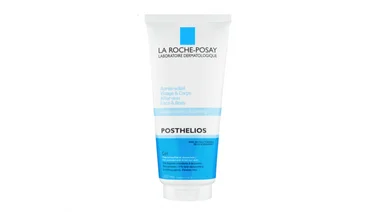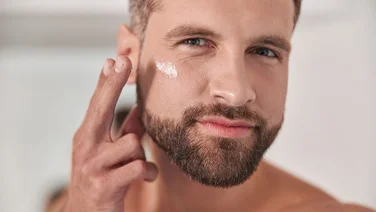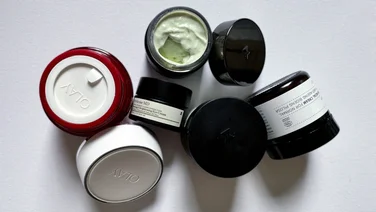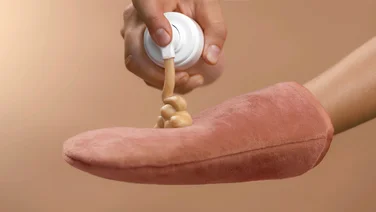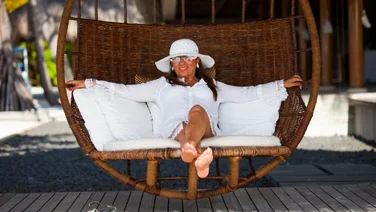To help us provide you with free impartial advice, we may earn a commission if you buy through links on our site. Learn more
- Best sunscreen: At a glance
- The best sunscreens you can buy
- 1. Soltan Protect & Moisturise Lotion SPF50+: Best value sunscreen
- 2. Avène Intense Protect SPF 50+: Best sun cream for sensitive skin
- 3. RoC Soleil Protect Moisturising Spray Lotion SPF 30: Best sun lotion for mature skin
- 4. Vichy Capital Soleil Solar Protective Hydrating Water SPF 50: The best lightweight sunscreen
- 5. Organic Children by Green People Scent Free Sun Cream SPF30: Best sunscreen for kids
- 6. Piz Buin Mountain SPF 50+: Best for skiers and snowboarders

Believe it or not, the best thing you can do for your skin daily is to apply the best sunscreen. Not only will this reduce the chances of your skin ageing prematurely, like the best anti ageing creams, but it will also protect you against harmful skin cancers. And if you think sunscreen is only essential on sunny days, think again. For maximum protection, you’re supposed to apply it even when it’s cloudy outside – and even if you spend most of your time indoors.
It’s no wonder that doctors, dermatologists and beauty editors alike will tell you that protecting your skin is of paramount importance. But sadly, not all sunscreens are created equal. If you don’t know your SPFs from your UVAs and UVBs, click the link below to read our handy buying guide as we shed some light on what to look out for. Or, scroll down to read our list of the best sunscreens you can buy.
Want to learn more?
Best sunscreen: At a glance
| Best value sunscreen | Soltan Protect & Moisturise Lotion SPF50+ | |
| Best sun lotion for sensitive skin | Avène Intense Protect SPF 50+ | |
| The best lightweight sunscreen | Vichy Capital Soleil Solar Protective Hydrating Water SPF 50 |
The best sunscreens you can buy
1. Soltan Protect & Moisturise Lotion SPF50+: Best value sunscreen
Price when reviewed: £5 (200ml) | Check price at Boots

Not only does this budget-friendly sunscreen from Boots’ Soltan range offer the highest level of sun protection, but it also incorporates moisturising ingredients to keep your skin feeling hydrated. Boots has also gone the extra mile when designing this cream, creating a sun lotion that won’t have you wrinkling your nose when applying it liberally. Plus, it’s water-resistant, too, so even if you go for a dip in the pool to cool off, you’ll still be protected from the sun’s harmful rays and irritating bugs.
Key specs – SPF: 50+; Application type: Lotion; Volume: 200ml; Water resistant: Yes
2. Avène Intense Protect SPF 50+: Best sun cream for sensitive skin

Price when reviewed: £22 for 150ml | Check price at Boots
This much-loved, fragrance-free formula is so gentle, it can be used on babies and children from six months old – so it’s a great family-friendly choice. As well as offering super-high protection against sun damage, it also wards off blue light, plus it’s both sweat- and water-resistant, so you can feel confident that your skin is protected, whether you’re playing sport or in the pool. It dispenses as a medium-to-thick, off-white fluid that blends easily into the skin, so don’t be shy when applying. The addition of vitamin E and the brand’s signature Thermal Spring Water make it soothing, softening, and perfect for those prone to irritation. There’s no reason it can’t be used on your face, either (there’s no white cast), but we did find that it leaves a slight shine, and the thickness of the product may not make it suitable for those with oilier complexions. Still, a great all-rounder that’s worth the higher price tag.
Key specs – SPF: 50+; Application type: Cream; Volume: 150ml; Water resistant: Yes
3. RoC Soleil Protect Moisturising Spray Lotion SPF 30: Best sun lotion for mature skin

Price when reviewed: £18 for 200ml | Check price at Amazon
No heavy cream here – yet this cleverly designed chemical formula from the anti-ageing skincare experts at RoC is brilliantly moisturising and gives a velvety soft finish that keeps you well-protected throughout the day. The texture is light and non-greasy, and the product sinks into the skin easily, leaving no white residue on your body. The spray bottle even gives a pretty good aim, so you don’t need to worry about catching your clothes when you top up on-the-go. Overall, a top-quality sunscreen that will do the world of good for anyone wanting to fight the signs of ageing.
Key specs – SPF: 30; Application type: Lotion spray; Volume: 200ml; Water resistant: Yes
4. Vichy Capital Soleil Solar Protective Hydrating Water SPF 50: The best lightweight sunscreen

Price when reviewed: £21 for 200ml | Check price at LookFantastic
If you hate the feeling of tacky lotions on your skin – or you’re often in a rush getting ready – this Solar Water from Vichy is a refreshing alternative that offers broad spectrum protection. It mists on easily and requires only a little bit of rubbing before it’s completely absorbed. And it’s so delicate, you almost feel like you’re not wearing anything – save for that light, lemony, beach-holiday smell.
The formula is enriched with hyaluronic acid and the brand’s mineralising Thermal Water, so it leaves skin feeling silky smooth and comforted. The bottle seems to last for ages, too; even after putting this product through its paces for a couple of weeks, we barely made a dent.
Key specs – SPF: 50; Application type: Hydrating spray; Volume: 200ml; Water resistant: Unspecified
5. Organic Children by Green People Scent Free Sun Cream SPF30: Best sunscreen for kids

Price when reviewed: £29 for 150ml | Check price at Green People
When it comes to protecting our little ones from the sun’s harmful rays, ingredients that won’t upset their sensitive skin are likely to be high on the list of priorities. This sun cream from the natural skincare experts at Green People is particularly great for babies and children with very sun-sensitive or eczema-prone skin, since it’s fragrance-free, non-comedogenic, and 84% of the ingredients are organic. The texture is rich and creamy – which we loved – but it sinks in quickly (ideal when battling with an energetic toddler) and doesn’t feel greasy. It can be used on babies from six months old, but there’s no reason that mum and dad wouldn’t love it too.
Key specs – SPF: 30; Application type: Lotion; Volume: 150ml; Water resistant: Yes
6. Piz Buin Mountain SPF 50+: Best for skiers and snowboarders

Price when reviewed: £9 (50ml) | Check price at LookFantastic
High-altitude skiing calls for a high SPF cream. The sun is stronger up a mountain than it is at sea level, even though it doesn’t feel like it when you’re surrounded by snow and bundled up in hats, gloves and goggles. Areas such as your nose, chin and ears are particularly vulnerable, so it’s a good idea to look for a cream that offers protection from severe cold and wind, as well as UVA and UVB rays. Piz Buin’s Mountain Sun Cream offers SPF 50+ protection and is enriched with edelweiss to provide antioxidant properties. It even includes a Cold Shield Complex to guard against extreme weather conditions. It’s sweat and water-resistant, while the 50ml bottle is small enough to stuff into your ski-jacket pocket.
Key specs – SPF: 50+; Application type: Fast-absorbing cream; Volume: 50ml; Water resistant: Yes
7. Ultrasun Transparent Sports Gel SPF30: Best water-resistant sunscreen
Price when reviewed: £34 (400ml) | Check price at Amazon
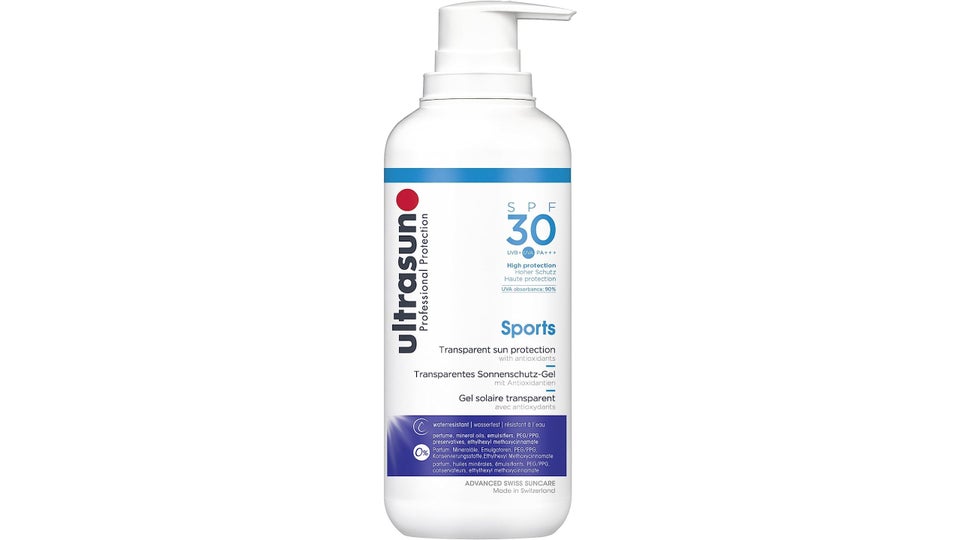
Designed for active types and water sports fans, this clear, non-greasy gel from Swiss brand Ultrasun rubs in smoothly and absorbs quickly. It offers SPF 30 protection for up to eight hours and is water-resistant – although, as always, it’s best to reapply after lengthy swimming sessions. It’s free from fragrance, mineral oil, silicones and preservatives, and can be used for up to two years after opening, so it could well see you through more than one holiday. Antioxidants (including grape seed extract) offer an extra layer of protection against harmful infrared rays (IR), as well as UVA and UVB rays.
Key specs – SPF: 30; Application type: Gel; Volume: 400ml; Water resistant: Yes
How to choose the best sunscreen for you
It’s all about the SPF, which stands for ‘sun protection factor’. A product’s SPF rating indicates the level of protection it provides against ultraviolet B radiation (UVB), which is the main cause of sunburn. The scale runs from two to 50+, with the latter being the strongest form of UVB protection available. To put that into context, SPF15 sunscreen blocks around 93% of UVB radiation, while SPF50+ blocks around 98%. The British Association of Dermatologists recommends you use sunscreen with an SPF of at least 30.
The level of sun protection offered is, of course, the most obvious difference between competing brands. However, there are also products designed to suit specific needs, such as sensitive skin, as well as formulas designed specifically for children. You can even get sun protection in a non-cream form, as a water, gel or oil formula. “Formulations have advanced so much – they’re no longer the thick, white, gloopy textures of old,” confirms Dr Munir Somji, chief medical officer of DrMediSpa. “Some are so advanced they may also contain ingredients that not only protect your skin but repair the skin barrier, hydrate, repair DNA and prevent premature ageing.”
What’s the difference between UVB and UVA rays?
The sun emits two types of ultraviolet radiation. UVA affects the skin’s elastin, leading to wrinkles and premature ageing (although it’s also linked to developing skin cancers). UVB is responsible for sunburn and can increase the risk of skin cancers, too. Certain sunscreens carry a UVA star rating from zero to five, which indicates how much UVA radiation they absorb, relative to UVB radiation. Don’t be alarmed if there isn’t a number on the bottle, though: the rating system was devised and is owned by Boots, so not all brands carry it.
The British Association of Dermatologists suggests that an SPF of 30 and a star rating of four out of five is “generally considered as a good standard of sun protection” (as long as this is paired with protective clothing and periods spent in the shade). The EU recommendation is that creams should offer UVA protection that’s at least a third of the SPF, so if you see a bottle with the letters UVA in a circle, you can be assured that it meets this minimum requirement. Sunscreens that offer strong protection against both UVB and UVA radiation are termed “broad spectrum” products.
What ingredients should I look out for?
Sunscreens fall into two categories: chemical, which convert UV rays into heat, and physical (more commonly known as mineral sunscreens or “sun block”), which contain mineral ingredients such as zinc oxide and titanium dioxide to reflect the UV rays away. Chemical formulas tend to be thinner, so they’re easy to apply daily – although you should wait at least 20 minutes for the product to soak in before heading out into the sun. Physical sunscreens are less likely to clog pores, so they’re better for sensitive and blemish-prone skins, but they can rub off easily and may leave a white cast. Some sunscreens combine chemical and physical formulas for a belt-and-braces approach.
“Personally, I recommend physical sunscreens – titanium dioxide is extremely effective at blocking short-wave UVA and UVB rays, and it’s also non-irritating, while zinc oxide is water-resistant and won’t break down when exposed to sunlight,” adds Dr Munir.
Are once-a-day sunscreens effective?
A sunscreen that promises all-day protection from just one application may sound like the stuff of holiday dreams – but be aware that activities such as swimming or even just reclining on a lounger can cause the cream to rub off. You may need to reapply several times throughout the day to stay protected. Still, this kind of product is your best bet if – for example – you’re heading off to work in an environment where you can’t top up your sunscreen throughout the day, or throughout the winter.








